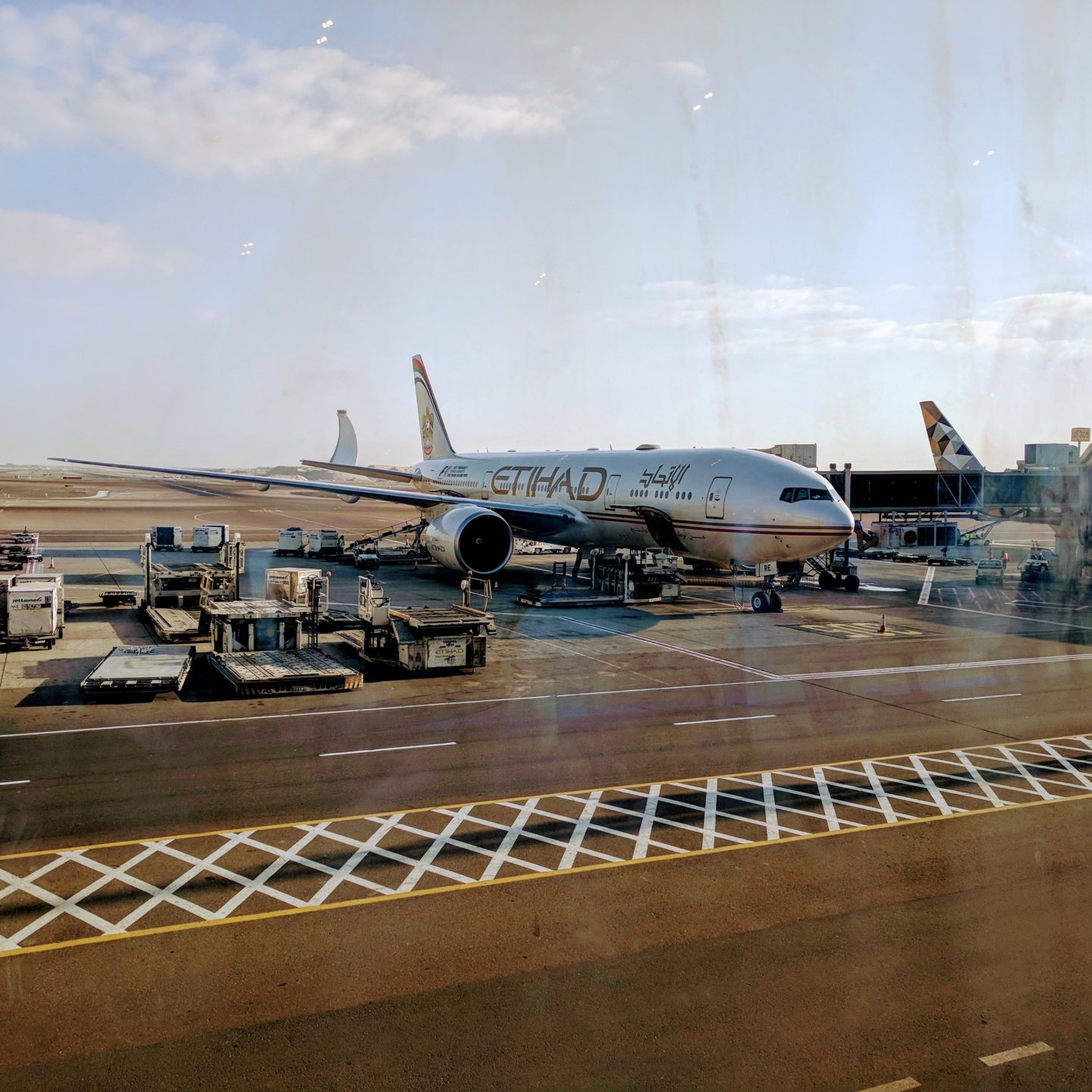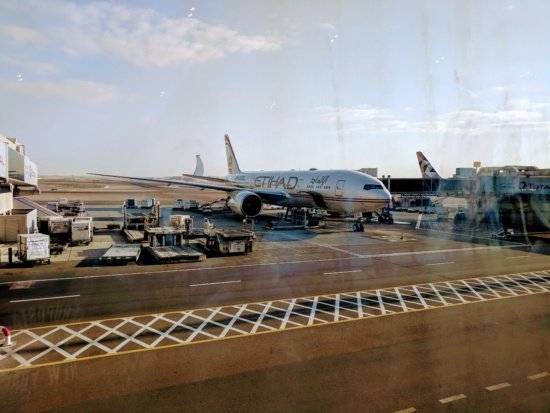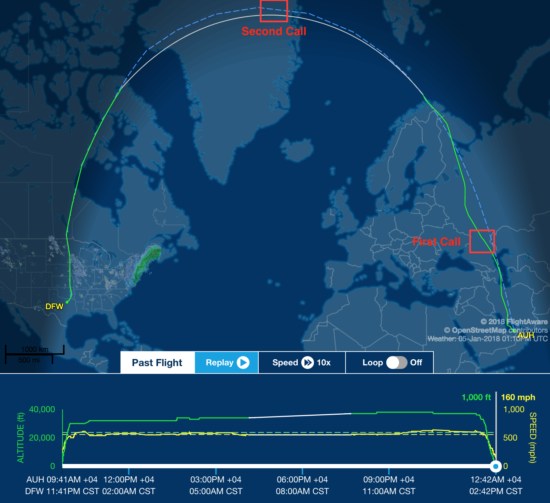Good afternoon everyone from Dallas. I have just finished up my second around the world trip and what a whirlwind adventure it was from San Francisco to New Zealand to Australia to India and back home.
Before I get into the details of my trip, I would like to talk about a most remarkable series of incidents on our last flight home and how it could’ve ended very differently (and thankfully for all concerned it didn’t).
On Friday, my family and I were flying back from Abu Dhabi to Dallas on Etihad (EY) 161, and about three hours out of Abu Dhabi the crew made a request for assistance from a physician on board. My dad is a physician and being the kind of guy he is immediately volunteered to help.
The case was this: a passenger who was seated in the first class cabin (hereafter referred to as: “the passenger” to respect the passenger’s privacy) was complaining of severe abdominal pain and expressed significant discomfort. After taking the patient’s medical history and checking the vitals (which were stable at that point), my dad recommended the crew to give the passenger some fluids and an antacid.
Fast forward 3 hours. The flight was somewhere over Greenland and the crew tapped my dad on the shoulder again. The passenger was now complaining of diarrhoea, dizziness, and had vomited all over the seat. The patient was already on oxygen when my dad arrived, but there really wasn’t any crew presence to help with attending to the patient. And so, it was at this point that my dad enlisted me to assist him since the crew were struggling to operate the diagnostic apparati such as the bp monitor, pulse oximeter, etc. The crew seemed to so dazed and disoriented that they hadn’t even cleaned up the aisle of the vomit.
This time around the situation had gotten much more serious: the patient’s pulse had dropped significantly and blood pressure had plummeted to 90/60. Given that the patient could not keep any fluids down (owing to the vomiting), my dad recommended that the patient be given IV fluids (which they had on board). And, this is where the entire situation got ridiculous: the crew were apparently communicating with a doctor on the ground (part of MedAire, an established medical consulting company). And, this MedAire doctor who hadn’t examined the patient or even consulted with the physician on board (my dad) saw fit to overrule my dad and told the crew to ignore his recommendations.
My dad tried to convince the crew that it was in the patient’s best interest to give IV fluids, but they refused to budge from their ‘protocol’. Things did not look good given that the nearest diversion point was at least 2-3 hours away.
Luckily for everyone, a combination of medication, fluids, and elevating the patient’s legs helped bring the blood pressure up to 112/70. And I mean extremely lucky because sometimes drinking water or fluids can induce vomiting and lead to an even further blood pressure drop.
Fast forward some more, we are 3 hours out of DFW. The crew called my dad in again. The patient was now looking extremely pale and dehydrated: the doctor on the ground, in his infinite wisdom, asked them to administer IV fluids. Unfortunately, as my dad had feared, the increased dehydration in the elderly patient (who already had extremely fragile veins) made it almost impossible to find a vein. But, since we were so close to landing, my dad simply asked them to just wait till landing instead of poking the passenger needlessly.
We landed without event but even after landing, to add further insult to injury, the passenger had to wait for nearly an hour on the tarmac (because we landed early) before they were able to give any medical attention.
Anyway long story short, this patient could have very much gone into hypovolemic shock. And the protocols in place seem ill suited for medical emergencies. It’s absolutely ridiculous for an airline crew to override a board certified, licensed MD who is physically attending to the patient. My dad had treated a patient before on a Lufthansa flight and the Lufthansa crew reacted completely differently – rightfully deferring to a doctor’s expertise.
This could’ve very well ended in an unfortunate and costly affair for the patient and Etihad, and the airline (and MedAire) should really consider revamping the existing protocol given that this isn’t the first reported incident of a problem with the protocols in place.
Perhaps MOST IMPORTANTLY: the diversion protocol can’t be wait until the crew administers CPR to the patient.
Looking at the map, where we would we have diverted at each of those points?




